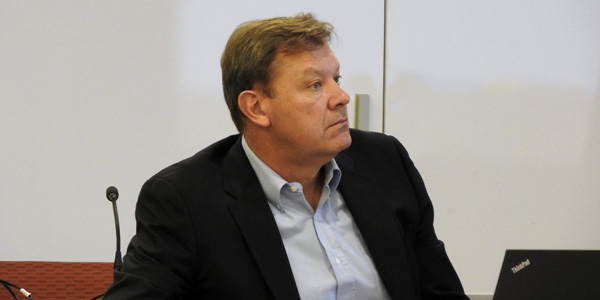VALLEY FORGE, Pa. — Even as PJM moves into a heavy outage season, its balancing authority area control error limit (BAAL) remains lower than usual, PJM’s Ken Seiler said at last week’s Operating Committee meeting.
PJM’s excursion minutes dropped to 177 in April, from 257 in March and 224 in April 2016. PJM posted a 99.6% BAAL score for April, improving 0.1 percentage point from a year ago and 0.2 percentage points from March. (See “Inconsistent Weather Contributes to Operational Inaccuracies,” PJM Operating Committee Briefs.)
Seiler said generators beyond PJM’s control but that tied into the RTO’s grid are still overgenerating, which is unbalancing the system. The excursions are mostly happening in “the valley period” between 1 and 3:30 a.m., he said, during light-load conditions when generation is mostly baseload units and wind turbines. He said PJM is working with neighboring grid operators to identify the causes of the issues, beyond large temperature swings.
“Our actual numbers are very good, actually,” Seiler said. “But when we look outside, we’re starting to see some excursions outside that are starting to have more of an impact on us.”
With new transient-shortage pricing set to go into effect on May 11, PJM’s Chris Pilong said system operators are being trained in how to best maintain lowest-cost generation, but that operations will largely remain the same.
“It’s an awareness issue,” Pilong said. “We need operators to understand these changes, which they do. They’re prepared for them.”
Calpine’s David “Scarp” Scarpignato, who raised the issue, said he agrees with the way PJM is handling the transition.
PJM Considering Compensation in Frequency Response Study
Stakeholders endorsed by acclamation PJM’s plan to address FERC’s recent Notice of Proposed Rulemaking on frequency response. PJM’s problem statement and issue charge suggest that the RTO might consider compensating units for maintaining primary frequency response, even though the NOPR is silent on the topic. (See “Stakeholders Push Back on Paying for Frequency Response,” PJM Markets and Reliability and Members Committees Briefs.)
John Farber of the Delaware Public Service Commission acknowledged it might be “reaching for belt and suspenders,” but he requested that the compensation issue be separated into another phase of the study from the main discussion.
This was received coolly by both stakeholders and PJM staff. “I think separating it too much may complicate the solution space that we come up with,” PJM Vice President of Operations Mike Bryson said. “I think separating it too much may predetermine the solution probably more than we’re willing to.”
— Rory D. Sweeney






